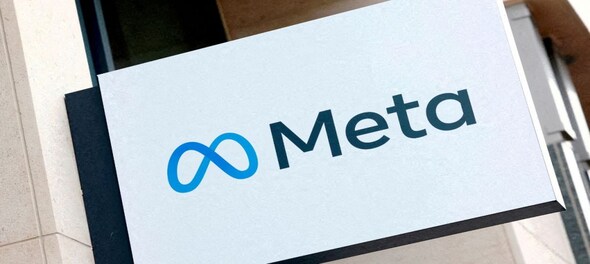
Global tech giant Meta is concerned that over-the-top (OTT) applications, for instance, messaging apps such as WhatsApp or Signal, can come under the regulatory ambit of a proposed law that gives the Indian government sweeping powers over telecom companies, Moneycontrol has learnt.
In an internal email to colleagues after the Telecommunications Bill, 2023 was tabled in the Parliament earlier this week, Meta’s policy head in India said that the government could choose to apply the proposed legislation to OTT services, which would include its own internet apps like Facebook, WhatsApp and Instagram, at a ‘future date’.
Although the reference to ‘OTT’ has been removed from the current version of the legislation that allows the government to intercept messages, set standards of encryption and take control of telecom networks, experts are worried about the broad definitions of ‘telecommunication services’ and ‘messages’ in the bill.
Shivnath Thukral, Director and Head of India Public Policy at Meta, relayed the same concerns to his colleagues in an email, on the same day Electronics and Information Technology Minister Ashwini Vaishnaw tabled the bill in the Lok Sabha on December 18. Moneycontrol has seen a copy of the email.
“The revised Bill text is now (in) the public domain. In a very positive movement, all explicit references to OTTs have been removed from the Bill…However, some ambiguity remains - as the definitions of “telecommunications services”, “telecommunications identifier” and “messages” could be interpreted to implicitly include OTT services, even if without explicit mention,” Thukral wrote in the email.
“Arguably, even after the removal of OTTs from these definitions, the Govt could have sufficient discretion to designate OTTs as a telecommunications service, and bring them under an authorisation regime, in case it chooses to do so via delegated legislation at a future date,” he added.
In the email, Thukral also mentioned that he had a conversation with ‘the Minister’, who conveyed that the government does not intend to regulate OTTs under telecom law. However, the email does not explicitly say which minister the Meta executive spoke with.
Moneycontrol has sent queries to the company on the contents of the email and the proposed telecom law. This article will be updated as and when Meta responds.
Bone of contention
In the recently-tabled version of the bill, “Telecommunication” is defined as, “..transmission, emission or reception of any messages, by wire, radio, optical or other electro-magnetic systems, whether or not such messages have been subjected to rearrangement, computation or other processes by any means in the course of their transmission, emission or reception.”
Additionally, “message” means “ sign, signal, writing, text, image, sound, video, data stream, intelligence or information sent through telecommunication”.
Some experts argue that online communication platforms such as WhatsApp, Gmail, Signal deal with the transmission, emission, or reception of messages over optical or electromagnetic systems, and hence can fall under the regulatory structure of the bill.
Additionally, the bill gives power to the government to intercept “any message or class of messages to or from any person or class of persons”, and “disclose in intelligible format” to officers concerned in the cases of public emergency, in the interest of public safety and so on.
Therefore, the powers of the government to set encryption standards, coupled with the mandate to disclose intercepted messages in “an intelligible format” can pose a threat to encrypted platforms such as WhatsApp or a Signal (if such platforms are brought under the ambit of the bill). However, sources close to the Government have clarified that OTTs have been kept outside the ambit of the proposed law.
On December 20, the bill was passed in the Lok Sabha, even as a couple of parliamentarians asked for clarity from Vaishnaw on these definitions. In the following days, the bill will be considered for passing in the Rajya Sabha, following which, if passed, it will turn into a law, replacing the archaic Indian Telegraph Act of 1885.
The bill also says that only entities that have obtained “authorised from the government” can provide telecommunication services. The government will formulate the rules and different terms and conditions for obtaining such said authorisation later.



